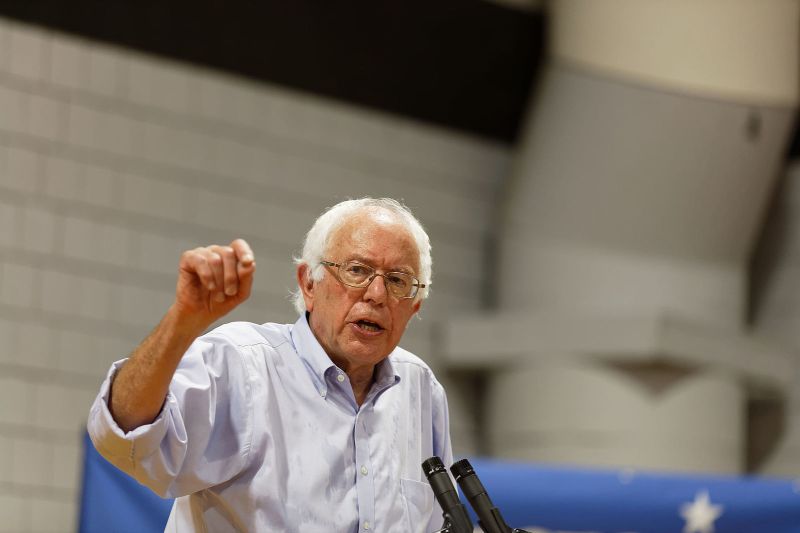It seems that some elements of the progressive electorate live in an alternate universe. Consider, for instance, a Daily op-ed published the Friday before last which claimed that “The Democratic Party stole an election.” It went on to weave an astonishing tale of deceit and fraud at the Iowa caucuses, with Pete Buttigieg and the Democratic National Committee playing the villains. As proof, the column cites a handful of random tweets, a web-only news commentary program, and a blog run by frequent defender of Putin foreign policy Max Blumenthal. Damning evidence indeed, yet voters remain unconvinced. So let’s examine the author’s theory on its merits rather than its (bitter, hyperbolic) rhetoric and explore the questions he fails to answer. What went down that fateful Monday night? Who are these dastardly rogues? Most importantly, how did they pull it all off?
Step into the shoes of the man behind the curtain. Your character is Tom Perez, party chairman and devious institutional puppet-master. You know Bernie Sanders must not win the nomination. He’s a Washington outsider, despite more than 13 years in the Senate and 16 in the House. Democratic elites hate him, notwithstanding his 20 endorsements from DNC officials and sitting members of Congress. Finally, Sanders is far too radical. That’s why the main thrust of his policies, from universal healthcare to radical action on climate change, is found in the platforms of every single one of his competitors — because they’re too extreme.
It’s decided, then: Bernie cannot be the nominee. You must rig the Iowa caucuses, using the awesome powers of a job nobody wants, a position so desirable you’re quitting after a single term. But who best to take the mantle of institutional figurehead in the fight against dirty, dirty socialism? The former vice president of the United States, perhaps? An experienced Minnesota senator, respected on both sides of the aisle? Maybe even a progressive trailblazer, progenitor of the Consumer Financial Protection Bureau, someone who can challenge Bernie’s stranglehold over young liberals? Of course not, dummy. You fix the results for the former mayor of Indiana’s fourth-largest city, an ex-McKinsey consultant burdened by an unpronounceable name, a gay Millennial shunned by gay Millenials, a political unknown with no signs of life among people of color and no establishment backing. He seems like the best bet to beat Sanders.
But on the night of the caucuses, disaster! The blue checkmarks of rose Twitter caught wind of your plot! How did they piece it together? Was it the days-long delay that called the results into doubt and blocked consolidation of the moderate flank? The flood of negative press that drowned out stories of Buttigieg’s success and chilled fundraising efforts? Impossible — you, the mighty Tom Perez, make no mistakes. It all must have been part of the plan.
And you knew the risks from the outset. To quote the aforementioned column, “Having it this backward is usually grounds for invasion.” As federal troops parachute into Des Moines, you flee your sprawling estate in middle-class Maryland suburbia, credibility in tatters. Still, there is reason to smile. Your candidate won! Not the popular vote, obviously; even an omnipotent DNC chair cannot tamper with an astronomical 6,000 person margin. But he triumphed where it mattered most, garnering 13 delegates to Bernie’s 12. That’s more than 0.65% of the 1,990 he will need to clinch the nomination. How could Mayor Pete possibly lose now?
As silly as they are, the Russia-nurtured fairytales peddled by Friday’s op-ed and its ilk embody the sickness at the heart of this primary. I work for the Buttigieg campaign. I’m not a CIA spook, I’m not affiliated with the donor class, I’m not shilling for Big Pharma. I’m a Stanford student, not a corporate lackey. My colleagues aren’t deep-state stooges. Contrary to the claims of certain Daily contributors, Pete Buttigieg is no Joseph Stalin, nor do billionaires manage his presidential bid. Our campaign is built on ordinary people coming together in a project as important as it is difficult. All of us, especially the mayor, want the same thing you and this columnist and everyone voting blue come November wants: an end to the Trump administration, a better future for America.
Washington has failed our country. On this, the author and I agree. But that does not and cannot excuse the misinformation, vitriol and scare tactics he and others like him use to push political goals — particularly when their behavior recalls the supporters of a very different statesman. To be sure, representatives of the Twitter intelligentsia promote a more ethical body politic than their opposite numbers in the West Wing. Yet their toxicity, their conspiratorialism, their suspicion of the fourth estate, their cruelty towards dissenters, their purity tests, their demonization of ideological opponents, their deliberate disregard for facts, their destructive online personas and their proclivity for cults of personality complicate the argument that we Democrats hold the moral high ground.
Indian novelist Vikram Seth once wrote, “God save us from people who mean well.” I’m sure that the folks bringing coffins to Biden events or threatening union officials or comparing rival candidates to dictators in Daily op-eds do so with the best of intentions. But they’re living in a factional twilight zone, a shadowy world predicated on a fundamental distrust of institutions and norms. It’s a place where two wrongs make a right, where agitprop usurps journalism, and where dogma supersedes the nuance of honest disagreement.
And yet, the least defensible aspect of this column’s drunk-goggle reality is its willful ignorance of how the primary is actually playing out. With an effective tie in Iowa, a narrow win in New Hampshire and a landslide victory in Nevada, Bernie Sanders is now the prohibitive frontrunner for the Democratic nomination. That much is indisputable. If the all-powerful DNC really had the ability to rig this election, why wouldn’t they bother to do it properly?
Contact Sean Casey at spcasey ‘at’ stanford.edu.
